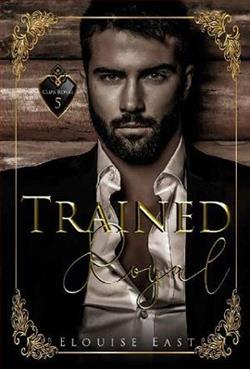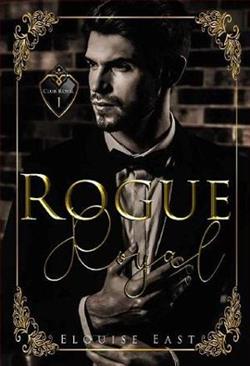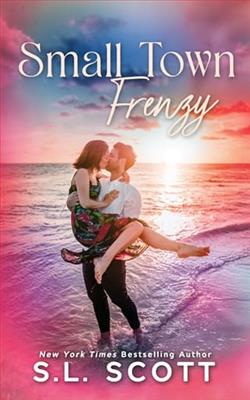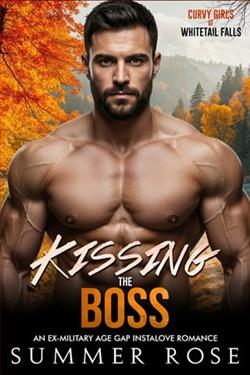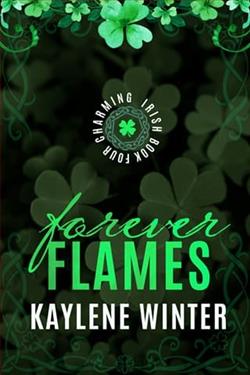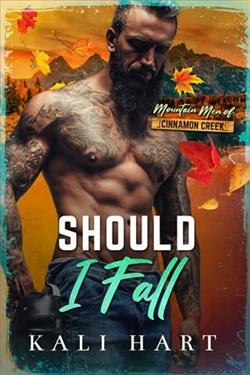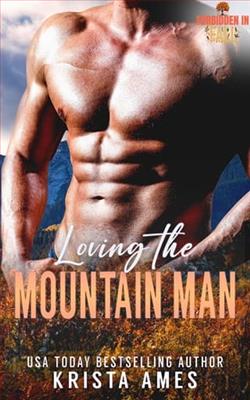Page 13 of The Haunting of Paynes Hollow
“It’s about the land,” my grandfather said when my uncle Mark wanted to tear down his cottage and build one of those fancy beach houses. “Harris understands that. His wife understands that. Even their little girl understands that. It’s about the land.”
I’d been so proud when I overheard that conversation. Yes, I understood. Itwasabout the land—the glorious endless forest and beach that was all ours. Our family compound, where I could run to my grandmother’s cottage for breakfast and back to my own for lunch, with a shared barbecue on the beach for dinner. Where I could ride my bike to town and everyone knew me and the shop owner snuck me sweets and ice cream. Where I could explore the forest trails all day and walk along the lakeshore at sunset. The only thing I couldn’t do was swim alone, but that made sense, and I was still allowed to fish and wade to my knees, and Mom would take me swimming off the platform and Dad would take me canoeing along the shoreline.
It’s about the land.
Except that wasn’t what my grandfather meant. He meant the value being in the land itself, and as a child, I took that metaphorically. To me, the land meant a king’s ransom of adventure. But he meant the actual value.
Ten million dollars.
For land that held three rustic cottages and a storage shed.
I don’t see the shed or the other cottages. That’s part of the design. Trees separate the buildings enough that we could pretend we were here alone.
All I see now is our cottage.
And it looks exactly as I remember it.
A plain rectangular building with a full-length front porch. As boring a piece of architecture as one could imagine. All-natural construction, the wood weathered, as it’s been for as long as I can remember.
It looked exactly like this each summer when we rolled up, and then Mom and I spent the day unpacking our clothes and food while Dad brought out all the touches that made the cottage our own: my bike, the porch chairs, the box of lawn games.
One year Dad had added something new to the front door. A custom wooden sign with painted caricatures of him and Mom and me, our names below each. Mom had gently asked if we could hang it inside. She didn’t like the idea of announcing that they had a little girl, complete with her name.
Best not to tempt predators.
Except the predator was inside, sleeping beside her.
I swallow hard.
“Sam?” Gail says softly, and I realize the car has stopped and I’m sitting here staring at the front door after she’s already climbed out.
I push open the door with more force than necessary. Then I stride up onto the porch.
“It looks in decent shape from the outside,” Gail says as she fumbles with the key ring. “That’s a good sign. Structurally sound. They always were. As basic as possible, but sturdy enough to withstand all Lake Ontario can throw at them.” She pauses and glances over. “I’m babbling.”
“Babble away.” I lean my head against her shoulder. “I’m glad you’rehere. I know I argued, and you probably didn’t feel welcome, but I do appreciate it.”
“You didn’t want me to feel obligated. I get it. But this was my choice.” She takes a deep breath. “Ready?”
I push open the door without answering. Then I stride in and—
The whole world stops as cold rushes through me.
I’m standing in my childhood summer home.
Not the building it used to be in. My actual home.
Nothing has changed.
Nothinghas changed.
I’m in the kitchen, on the mat where we were supposed to wipe our feet—or our shoes, but mostly our feet, because mine stayed bare until Labor Day. There’s a towel hanging on the wall for wiping them if they’re muddy or wet, and it’s the same towel it’s always been—my threadbare Lilo & Stitch beach one.
In front of me is the vintage yellow Formica kitchen table that Aunt Ellen turned up her nose at. It’s set for dinner, with equally bright primary-color stoneware, the plates draped in cloth napkins because Mom hated the waste of paper ones.
Ready for dinner. Just as it had been that last day.
Mom liked to set the table for the next meal after the last one was cleared, and that day, I’d helped her. Then I’d gone to wander. Dad was out chopping wood. I’d been heading to see him when Mom called me in—she’d realized we were out of burger buns for dinner and did I want to come to town with her? I did. We climbed into the car, and as we were leaving, we spotted Dad, and I waved. He’d been distracted, didn’t seem to see me.








